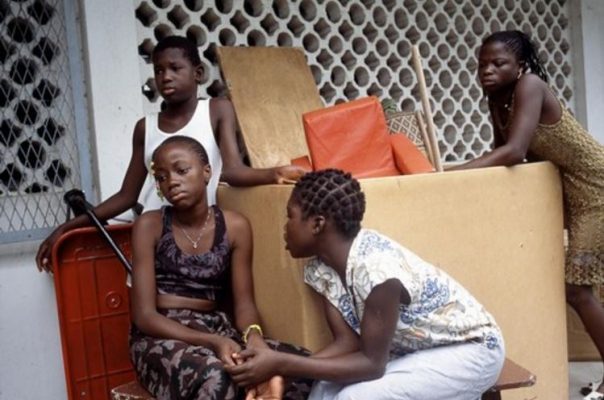The United Nations International Children’s Emergency Fund (UNICEF) has also faulted statistics of 10.5 million children believed to be out-of-school in northern part of the country.
The organisation insists that several programmes, including Cash Transfer Programme (CTP) and Educate-a-Child project sponsored by the Department for International Development (DFID) ought to have reduced the number of out-of-school children.
The organisation also says it has therefore, in a bid to increase girl-child enrolment, intensified CTP in Niger and Sokoto State with 23,655 girls as beneficiaries.
Read Also: Boko Haram: Nigerian Army hands over 183 children to UNICEF
Mr Terry Durnnian, the Chief of Education, UNICEF said that the disbursement in Niger and Sokoto State for two years was targeted at increasing school enrolment.
He explained that out of the 23,655 girls from the first UNICEF sponsored CTP, 12,314 and 11,341 girls from Niger and Sokoto State respectively had benefitted.
He observed that the programme had increased enrolment of girl-child in Niger and Sokoto State with 29.4 per cent and 32.4 per cent respectively.
Durnnian said that the programme was also aimed at increasing school attendance rates for children and enhance the socio-economic welleing of beneficiary households in the states.
Following the increasing number of out-of-school children globally, the UNICEF chief said that the organisation was implementing the CTP in Kebbi and Zamfara.
“The vast majority of out-of-school children are located in northern Nigeria; children living in the rural areas have less chance of attending schools than those in the urban areas.
“To increase school enrolment and attendance rates, UNICEF is implementing CTP in Kebbi and Zamfara, funded by Education Above All Foundation,’’ he said.
Durnnian said that the menace of out-of-school children was worrisome as 264 million students were out of school globally with more than 10 million out of school children in Nigeria.
Also, Mrs Azuka Menkiti, Education Specialist in UNICEF, said that the project was to ensure cash payment to parents for bringing their children to school.
She observed that the method had brought a major success in reducing the number of out-of-school children in affected states.
She also noted that there ought to be empowering programmes for every family to fight poverty that had become an impediment to children attendance in schools.
“High level of poverty which has hindered families from sending their children to school informs the introduction of CPT where cash gifts were offered as a form of inducement to get students back to school.
“A high-level poverty assessment is conducted to identity the poorest communities to engage within the implementation of the CTP.
“The monitoring and evaluation unit of the organisation also embarks on routine checks on the level of compliance,’’ she said.
She said that the organisation was working with the Federal Ministry of Education, Universal Basic Education Commission and other departments to ensure the success of the programme.
In view of its effectiveness, the Sokoto State government said that it had adopted the programme in its sustainability plan, noting that the state expended N500 million in 2017 to improve girl-child enrolment.
Mr Muhammed Kilgori, Sokoto State Commissioner for Higher Education, said that the state government had also begun the disbursement of stipends to poor households who could not afford to educate their female children.
Kilgori said that the initiative was to complement UNICEF efforts in boosting education quality among female children.
“We are committed about the girl-child education and our target is to ensure that all the 23 local government areas of the state benefit from the programme as against the six that are currently benefiting.
“We have already engaged traditional rulers to mobilise and sensitise their communities to the need for taking part in the programme,’’ he said.
Similarly, Sultan of Sokoto Sa’ad Abubakar said that the programme had yielded remarkable progress in the area of school enrolment empowerment of women and drastic reduction of street hawking among the girls.
He observed that with the programme, most of the female children in the state had embraced education through UNICEF intervention.
Also, Mr Idris Azika, coordinator of the programme in Niger, said that the government had earmarked N193 million to support the sustainability of the CTP for three years.
He said that the state government had also given a matching order on the release of N50 million for the payment of the first tranche of the CPT.
Azika admitted that the programme had contributed to the development of children, particularly the girl-child education in the state.
Observers note that the UNICEF CTP which was first initiated in 2014 in Niger and Sokoto states and later extended to schools in Zamfara and Kebbi, has increased enrolment and contributed to retention of pupils.
UNICEF CTP is a project in the Child Rights Information Bureau of the Federal Ministry of Information and Culture.
Observers explain further that the importance of quality and affordable education in Nigeria cannot be overemphasised as the world has moved from just having huge population but quality and productive population.
They, therefore, suggest that Nigeria with more than160 million people ought not to be ranked among the countries that have high number of illiterates, high mortality and maternal death rate, low life expectancy and high number of out-of-school children.(NANFeatures)

